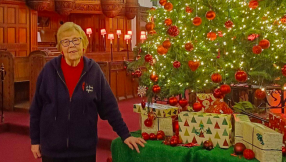Deadly suicide bomb attack on church in Nigeria
The Islamic extremist Boko Haram group was suspected of detonating the bomb at the gate of Living Faith church as members were leaving an early morning worship service; the explosion also brought down a wall of the adjacent Harvest Field church, an eyewitness told Compass.
CDN said that Kyemme Nzarmo, a student at Abubakar Tafawa Balewa University in Bauchi, told Compass he saw 12 corpses, other eyewitnesses reported 10 deaths, and at press time Baucha State Police Commissioner Mohammed Ladan said eight church members and the bomber were dead.
A Nigerian Red Cross official told Compass it had brought at least 30 people to the Teaching Hospital of Abubakar Tafawa Balewa University for treatment of wounds and burns. Ladan said the bomber rammed through a checkpoint.
"We had mounted a road-block manned by our men, and they tried to prevent the bomber, but he refused to stop at the checking point and instead hit the security gate," Ladan said. "The bomb exploded and killed the people there."
Spokesmen for Boko Haram, which has carried out similar attacks in Nigeria, have been comparatively quiet since an April 26 bombing of an Abuja newspaper and have not taken responsibility for this explosion. With its Hausa-language name literally meaning "Forbidden Book" and translated as "Western education is forbidden," Boko Haram has targeted churches, state offices, law enforcement sites and some moderate mosques in its effort to destabilize the government and impose a strict version of sharia (Islamic law) on all of Nigeria.
The Islamic extremist sect has killed at least 530 people this year alone.
CDN says that Nigeria's population of more than 158.2 million is divided between Christians, who make up 51.3 percent of the population and live mainly in the south, and Muslims, who account for 45 percent and live mainly in the north. The percentages may be less, however, as those practicing indigenous religions may be as high as 10 percent of the total population, according to Operation World.













